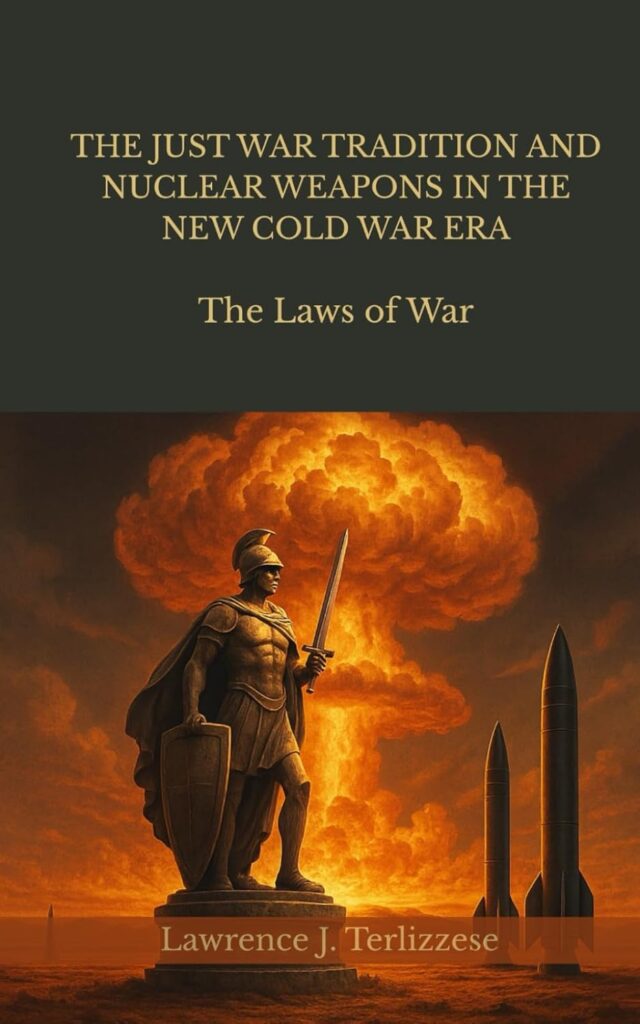
THE JUST WAR TRADITION AND NUCLEAR WEAPONS IN THE NEW COLD WAR ERA: The Laws of War
Can Nuclear War Ever Be Just?
In a world teetering on the edge of renewed global conflict, The Just War Tradition and Nuclear Weapons in the New Cold War Era confronts the chilling reality of modern warfare with moral clarity and philosophical depth. Lawrence J. Terlizzese revisits the timeless ethical questions of war and peace, applying the classic principles of just war theory to today’s most dangerous weapons and… Read more

THE BOOK OF REVELATION: The Climax of Hope
The Book of Revelation: The Climax of Hope by Lawrence J. Terlizzese offers a profound exploration of the final book of the Bible, revealing its timeless relevance and urgent message for today’s world. Terlizzese masterfully bridges ancient prophecies and contemporary issues, interpreting John’s apocalyptic visions in the context of modern existential threats such as environmental degradation, technological overreach, and global conflicts.
This work challenges readers to see beyond the surface of contemporary life, question secular ideologies, and embrace a life of… Read more

Faced with a decision that will affect the course of history and the balance of power in the Western hemisphere, the young urban professional Cosmo Valente struggles to find himself while trying to choose between the type of society he wishes to live in. Set in a future post-United States world that has fractured into several competing nations, plagued by civil war and interminable infighting, vying for supremacy over the remnants of the old Union. The clamorous powers of North America fight to protect their sovereignty from the expanding Communist regime of the newly created Latin American Alliance. Armed with nuclear weapons… Read more

Shards: Fragments of Mind presents a collection of aphorisms, epigrams, terse journal entries, notes, short vignettes, and pity statements, as well as longer segments, such as unpublished papers, blog posts, and essays meant to enlighten the reader and inspire the ability to think; none of these minutes are meant to be exhaustive, although no linear organization enforces itself on the text comprehensive themes will be discovered through comparable reading. Each entry stands alone and is presented in no particular order. I cover topics as varied as Extra Terrestrials and Christianity, cell phones, and Just War Criteria. The reader may start at any point from… Read more
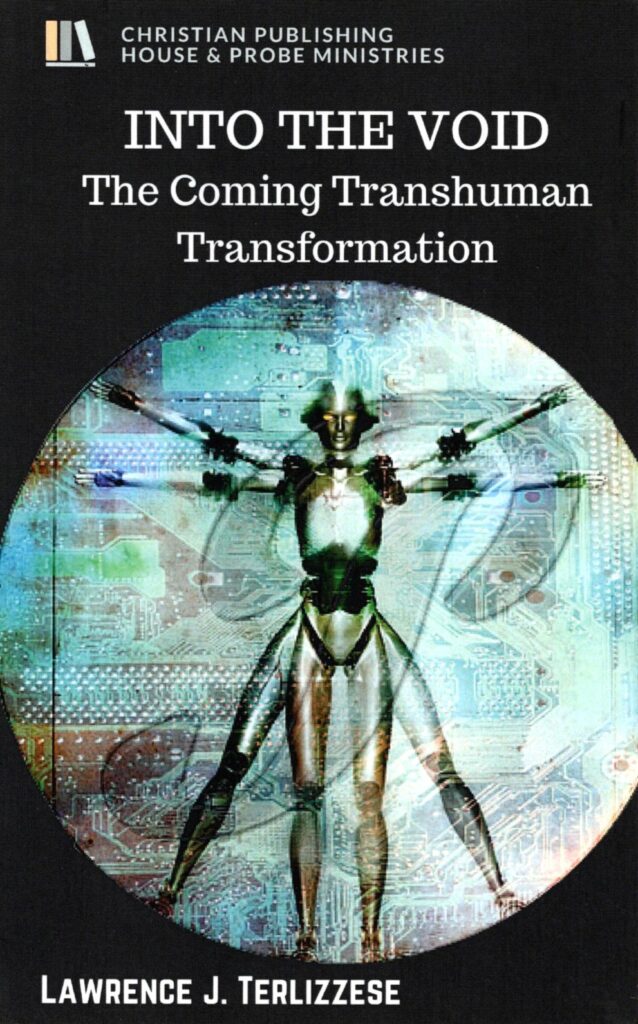
INTO THE VOID: The Coming Transhuman Transformation
Today’s Technological progress is mankind’s greatest achievement, but may lead to total destruction. Technological progress consumes more than it produces, it pursues its own ends not that of humanity’s and cannot accelerate indefinitely on a planet with finite resources. Jacques Ellul noted “[t]echnique (technology) has its limits. But when it has reached those limits, will anything exist outside them . . . is it (technological acceleration) not succeeding in undermining everything which is outside it?” (Ellul 1964, 85) Once technological limits are reached… Read more
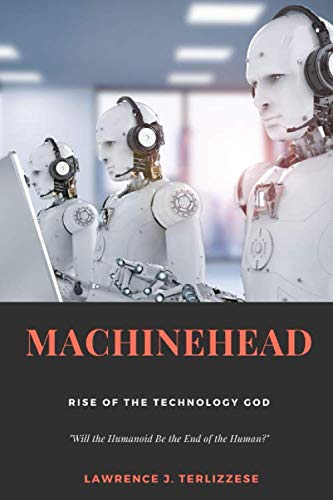
MACHINEHEAD: Rise of the Technology God
Technology is everywhere, we live, and breath and move in it, but what is our technology worship doing to our souls? How does it impact our relationships with each other? Can we remain human in a technological environment? Terlizzese addresses these questions and more in my latest book Machinehead: Rise of the Technology God. This book on social criticism speaks to the history and sources of computer worship and digital adoration and its consequences for… Read more
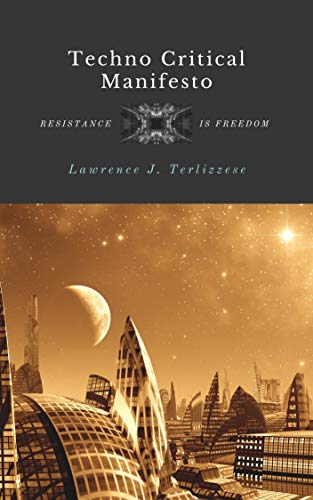
TECHNO CRITICAL MANIFESTO: Resistance is Freedom
A lot of confusion exists over the right ethical approach to new technologies. Do we embrace it all as an unmitigated good? Or should we take a more cautionary route that seeks to evaluate our own technology use and its impact on society from a critical perspective? A new awareness of both the dangers and potential benefits new technologies offer will guide us through a morass of ethical questions. We stress limits because… Read more
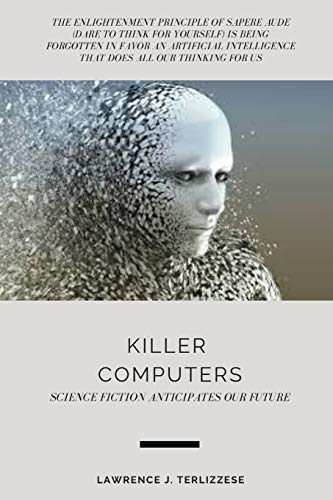
KILLER COMPUTERS: Science Fiction Anticipates Our Future
A lot of confusion exists over the right ethical approach to new technologies. Do we KILLER COMPUTERS is meant to stimulate thinking on the most critical issue of our times, technology, and in particular Artificial Intelligence, which occupies the foremost of our attention. It does this through a common reference: science fiction films. Science fiction does not predict the future, but it does, for better or worse, anticipate it. KILLER COMPUTERS are a metaphor for… Read more
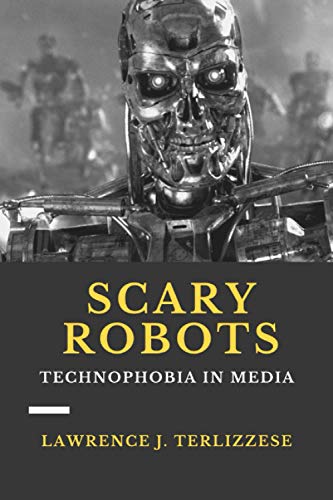
SCARY ROBOTS: Technophobia in Media
Technophobia causes us to reflect, to stop and ask “what for?” Why are we doing this and could there be negative consequences to our actions. Technophobia is not anti-technology – if we are honest no one is really anti-technology that would be a rejection of life itself. But neither does technophobia give the green light to all things technical. An altogether too common position these days is to accept technology as manna from heaven as if just the very use of it will… Read more
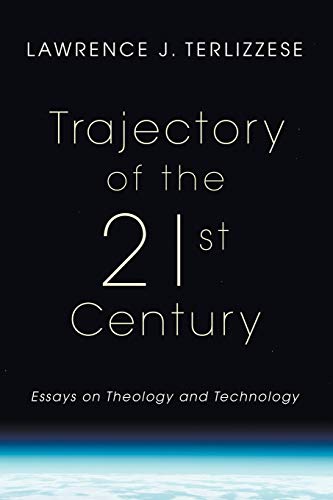
Trajectory of the 21st Century: Essays on Theology and Technology
Trajectory of the Twenty-first Century explores what many prophets of the twentieth century, such as Oswald Spengler, Paul Tillich, Aldous Huxley, Jacques Ellul, and others, have predicted would transpire in the current century. Their vision included an out-of-control technological system and a return to religious sentiment that will ultimately undermine the system to which it is reacting. This book aims to accurately present their positions and draw certain logical conclusions from… Read more
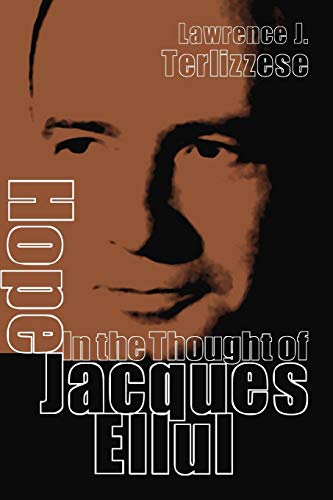
Hope in the Thought of Jacques Ellul
Hope expresses more than an area of concentration in Ellul’s thought; it is the central idea that binds his disparate elements together. Ellul believed that at this moment of history, the world since 1945, hope must preoccupy our thinking and lives. “To understand hope we must first comprehend its absence. This entails discerning what causes the absence of hope, namely the world’s embrace of technique and the abandonment of God. Ellul also rejected these as a positive affirmation. He wanted to make a firm distinction between reality and truth. He affirmed modern abandonment as a realistic fact, as an accurate analysis of the present condition, not as… Read more

